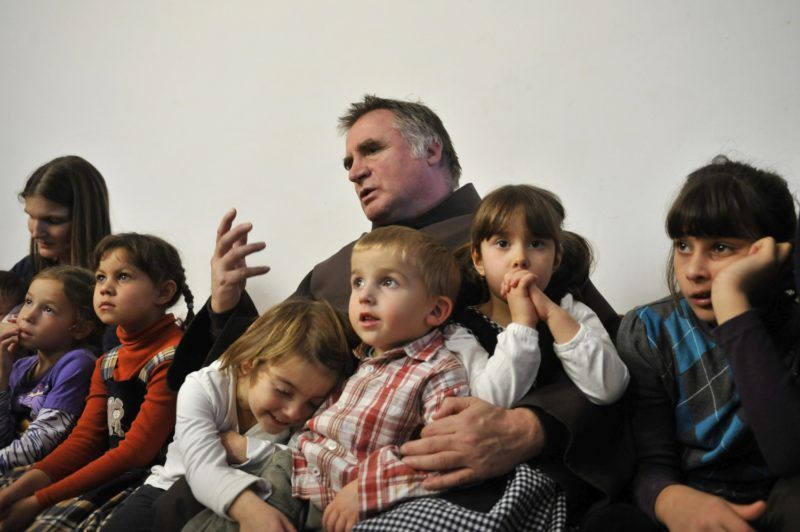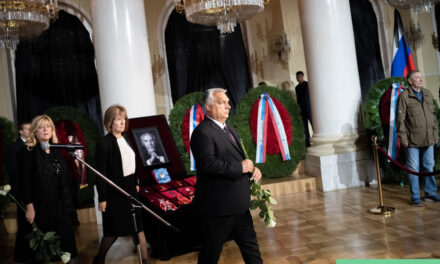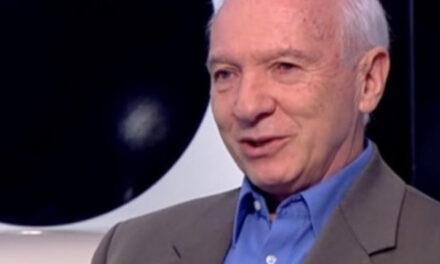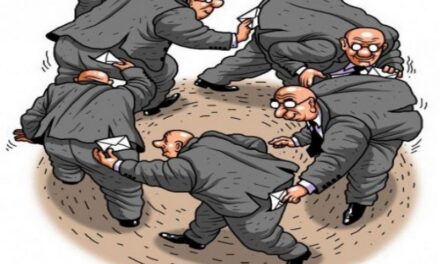The fight against the stupidity of Communism and the power of darkness, the troubled young girl who became a helper for several graduates, and the Holy Trinity as an "environmentally friendly energy source" were also discussed in the second part of the interview with the Franciscan brother Csaba Böjte, who was nominated for the Nobel Peace Prize, and was broadcast in two parts. which was broadcast on Good Friday on Kossuth Radio.
While the first part of the broadcast, broadcast on Maundy Thursday, discussed, among other things, the early loss of the father, who was imprisoned for his poems in 1956, the new part included the middle cross of the Order of Merit of the Republic of Hungary, the Hungarian Heritage Award, the András Sütő Award, the Pro Cultura Hungarica Award, and the Imre Makovecz Csaba Böjte, the Franciscan friar who was awarded the prize, and the founder of the St. Francis Foundation of Déva, also told his interlocutor, Gergő Süveges, what all this had done to him in his youth.
"I grew up knowing that my father was killed by the communist regime. The torture and abuse he suffered in prison brought him to the grave. I also read The Count of Monte Cristo, I thought about revenge.
When I started to grow up, I started to think about who I was going to visit and comfort when I grew up. I thought those who beat him. But they did it on orders.” Later, he thought about the prosecutor, the judge, who had wrongfully convicted his father. Then he realized that the communist system was like that.
"I realized that I'm more angry at stupidity, stupidity, darkness"
said the monk. "But then I thought that the darkness cannot be broken up, shoveled out of the window.
If I light a candle, it does more harm to the darkness than anything else. Love that changes the world is wisdom and learning. These six thousand children are my revenge for everything I suffered as a child."
Communism often targeted the simple, uneducated class. They built their "empire of violence, their revolution from such half-orphaned people wandering the streets". "I'm trying to retrain the raw material of future dictators so that they can be useful taxpayers for society," he added.
Father Csaba, fondly referred to as Brother Csaba across the country and beyond the border, gave several examples of how he often managed to steer quite problematic young people towards a consolidated way of life through years of hard work. For example, a girl who gave birth to a child in her teenage years and then started a messy life only started to raise the child she left with them after longer detours, and then she also worked with other children - now she is helping several graduates of the foundation.
Raising children is not a boxing match to throw in the towel - explained Father Böjte, who compared the foundation to a tree "on which the birds of the sky have landed".
When asked how he gets "charged" for his duties, he replied: he has a "good boss". "I believe that God is infinite. Not only do we have to plug our phone into the charger, but we also have to (recharge) ourselves. The Holy Trinity is an energy source that is environmentally friendly and not harmful to anyone."
He is slowly beginning to see the foundation and the children he has raised for several generations as grandparents - he answered the question of whether he has chosen a possible successor - and each of the institutions that operate independently from the start is able to stand on its own, and in addition, many well-educated, young professionals work for them .
The responsibility rests with us…. The Lord does not order us around, He respects our personal free will, our decisions.
Father Csaba
translated by dr ke pic.twitter.com/XXRvjWHIIB— Csaba Böjte (@csaba_bojte) January 5, 2019
Approaching his retirement age, he really feels - Father Böjte used his favorite simile, which he used at other times - that "the pot needs to be sharpened". He explained this on a previous occasion as follows: "My grandfather used to say that you don't just have to stack the bottle, you have to be able to sharpen it. You have to feel that it is now big enough and you have to be able to finish the work with it so that the wind doesn't tip it over and the rain doesn't soak it. It's time to let go."
He also spoke about living his age: "wisdom is reaching for the joys offered by God, and not reaching for what may not be offered to you."
Source: hirado.hu
Featured image: Attila Kovács / MTI













